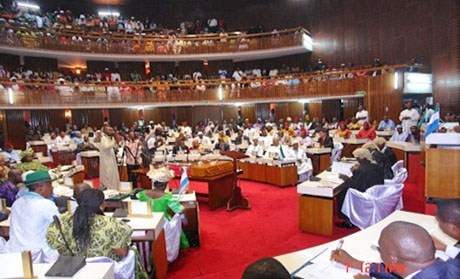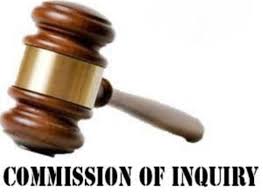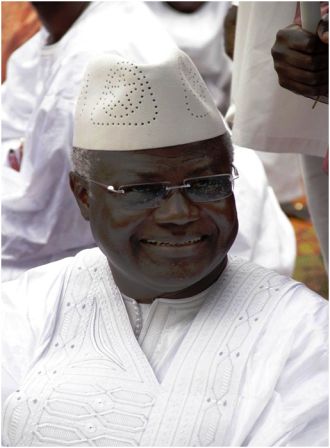President Koroma’s call for ICC is imminent
The past 11 years of devastating war led to the wanton destruction of the fabric of the Sierra Leonean society. Today, the unspeakable glimpses of people roaming around the country with limbs chopped off and those with amputated legs depict the “egregious” human rights abuses that accompanied the brutal conflict.
It took a considerable number of years including huge financial and human resources for the international community, donors and ECOWAS to stem the tide of the then rising tension and the protracted civil conflict. DFID and other international partners did made efforts to mobilize both financial inputs and human resources to establish the DDR program that saw the demobilization, decentralization and reintegration of ex-combatants in various communities.
The DDR was set in motion to divert the mindset of all fighting force from conflict to meaningful contributions to the development of the country after the war. In so doing, almost all the fighting forces were supported in life-long skills including basic and tertiary education to make them make ends meet that , grapple with the challenges of the country’s development and to take their destinies in their own hands. The next stage for the international community to have overcome the raging storm of a long civil conflict is by conducting free and fair democratic elections.
However, following the long suffering, the people finally resolved to put behind them those things that brought about the war.
Little wonder that the 1996 parliamentary and presidential elections that were conducted on the basis of proportional Representation ended successfully and peacefully. The SLPP led by President Alhaji Tejan Kabbah won the election, setting the parallel for political pluralism, democratic principles and its trappings of rule of law, justice and adherence to human rights. It was least expected that Sierra Leone would remain calm and peaceful between 1996-2001 as country coming from a brutal civil conflict. But, with the people’s resolve to put behind them war and bloodbath, the country went through the transitional period smoothly without any figment of the flames of war. In 2002 the country once more made history, going through a successful transitional period with the conduct of another democratic election. Again, SLPP led by Alhaji Dr. Ahmed Tejan Kabbah won a landslide victory to seal his second consecutive political administration.
In 2007, however, Alhaji Kabbah stepped aside and allowed his Vice-President, Mr. Solomon Berewa, to test his pulse in the political dispensations of the country. Mr. Berewa vied for the hot seat under the powers of incumbency but failed to attract much support from the people to lead the country in his presidential bid. And for the first time, a new breed politician in the person of Ernest Bai Koroma came out strongly at the polls to make a landmark in the history of the country’s politics to bring the APC back into the fold of internal politics after more than 15 years, since the party was overthrown by the NPRC “Khaki” Boys led by Captain VM Strasser.
It is important to note that, in its first term of office, the ruling government led by President Koroma is on the right track as endorsed by the international community as doing extremely well in his Agenda for Change options. The signs are there for Sierra Leoneans to see the diverse infrastructural development needs. But there is a major problem of rivalry clashes between the APC and the SLPP that has the propensity to detail the long term economic gains and sustainable development of the country.
The negating problem is that many Sierra Leoneans are scared and wary of the opposition SLPP’s continuous inflammatory statements and criticisms, often unsubstantiated and, seeking to divert the attention of the ruling APC in its development strides. Even potential investors and those yearning to bring their plethora of investments in the country are in a desultory fashion as to what happens before and after the November crucial elections. All this does not show a sign of good omen for the country and her teeming population.
This contentious issue and power supremacy have pitched the traditional and dominant parties (APC/SLPP) to draw dangers in a manner that exposes the country to danger ahead of the November 17th general election.
Recently, the SLPP made another submission and allegation about arms and ammunition purchased by the ruling APC as “diabolical” ploy to rig the coming election with a civil strife in the country. However, the ruling APC is yet to respond to the allegation. Now the whole episode gives a serious cause for concern: that the November elections are not going to be an easy ride or smooth sail for the electorates and the National Electoral Commission.
Against this dangerous background, however, it is responsive for the international community to heed to the earlier calls by President Koroma to invite members of the International Criminal Court (ICC) to be part of the Observer Mission in the November parliamentary and presidential elections.
The essence is for the ICC to avail itself of what obtains on the ground and, which of the political parties and their leaders would instigate violence or throw spinners into the whole democratic exercise. Right now, the country’s fragile peace is swinging like a pendulum and something needs to be done to keep it static before it smashes on the ground on the “whims and caprices” of some of the country’s overzealous and mischievous politicians. A stitch in time save nine and the ICC is charged to take action now!
By Nana Kofi Sarpong Smith
Stay with Sierra Express Media, for your trusted place in news!
© 2012, https:. All rights reserved.





